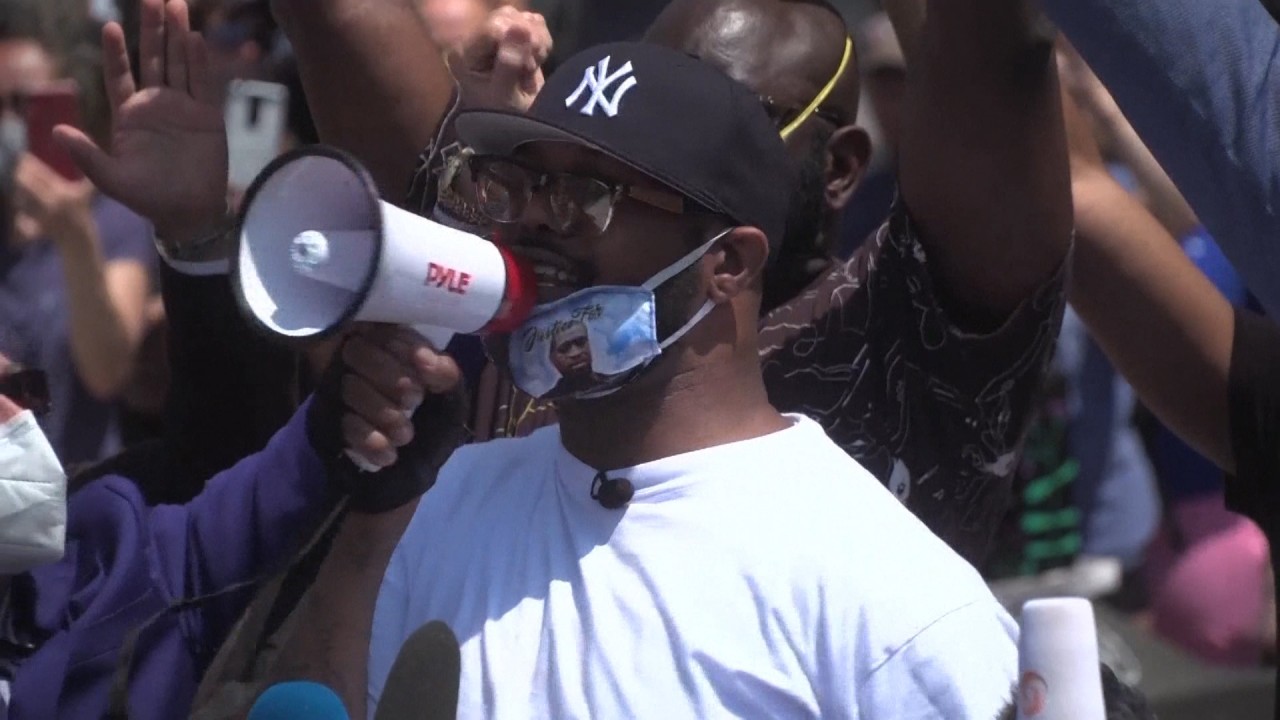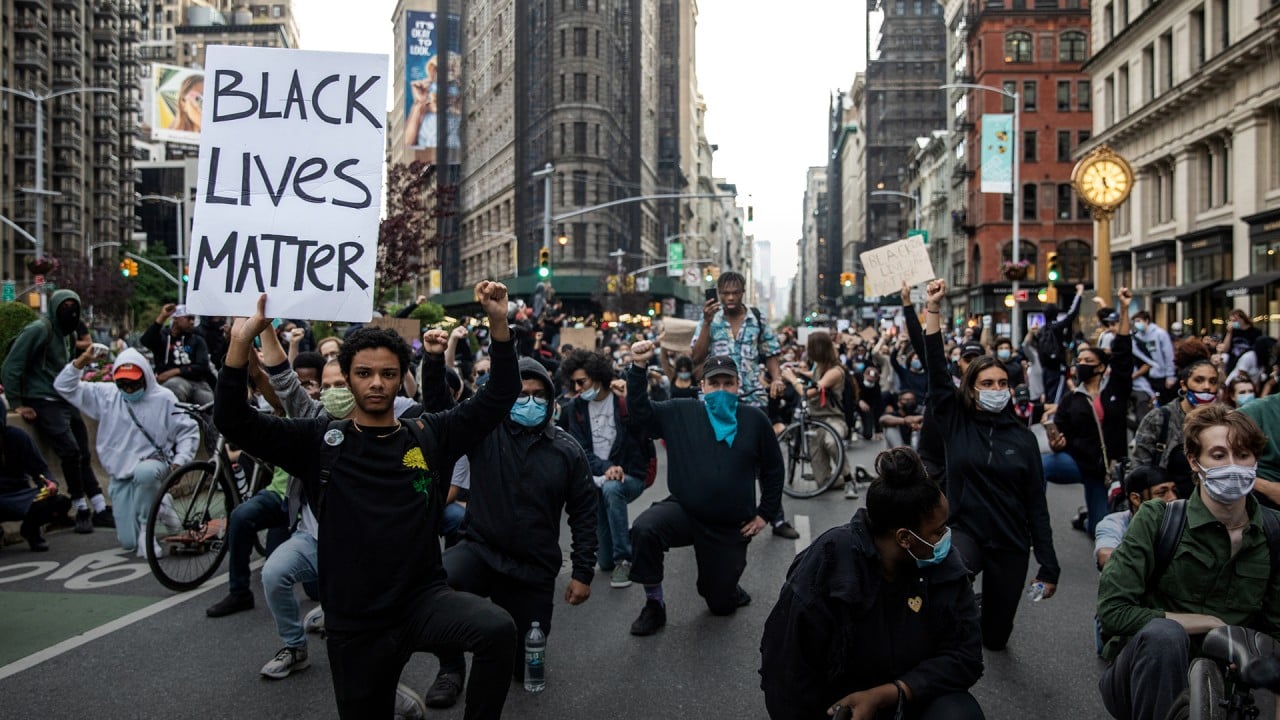
Boris Johnson says George Floyd’s death ‘inexcusable’ as UK police appalled by US violence
- The British prime minister declines to say whether he had spoken about the issue with Trump
- Thousands of people chant ‘no justice, no peace, no racist police’ in London to protest against racism
“I think what happened in the United States was appalling, inexcusable,” Johnson told lawmakers in parliament, in his first public comment on the case.
“We all saw it on our screens and I perfectly understand people’s right to protest what took place,” he added.
“Obviously I also believe that protests should take place in a lawful and reasonable way.”

00:51
'That's not going to bring my brother back,’ George Floyd's brother appeals for calm in US protests
Johnson’s comments echoed those of British police chiefs on Wednesday.
“We stand alongside all those across the globe who are appalled and horrified by the way George Floyd lost his life,” they said in a joint statement.
“Justice and accountability should follow. We are also appalled to see the violence and damage that has happened in so many US cities since then.”

Thousands of people chanting “no justice, no peace, no racist police” and “black lives matter” gathered in central London on Wednesday to protest against racism.
Many of the protesters wore face masks and were dressed in red. Some waved banners with slogans such as: “The UK is not innocent: less racist is still racist”, “Racism is a global issue” and “If you aren’t angry you aren’t paying attention”.
The police who stunned Americans – by taking a knee with protesters
“This has been years in the coming, years and years and years of white supremacy,” 30-year-old project manager Karen Koromah said.
“We’ve come here with our friends to sound the alarm, to make noise, to dismantle supremacist systems,” Koromah said, cautioning that unless there was action the UK would face similar problems to those in the US.
“I don’t want to start crying,” she said of the images from the US. “It makes my blood boil.”
London’s Metropolitan Police said 23 people were arrested following weekend protests over Floyd’s death in the city of Minneapolis last week.

03:30
Asian-Americans in New York among those joining US protests after George Floyd’s death
In their statement, police chiefs said they understood “people want to make their voices heard” but appealed to them “to work with officers at this challenging time”.
“The right to lawful protest is a key part of any democracy, which UK police uphold and facilitate,” they added.
“But coronavirus remains a deadly disease and there are still restrictions in place to prevent its spread, which include not gathering outside in groups of more than six people.”
Singapore’s Ho Ching sparks social media stir with US protests post
The report was commissioned after the racist murder of a black teenager, Stephen Lawrence, at a bus stop in south London in 1993.
The police investigation was marred by a catalogue of failures that saw no one convicted until 2012.
Despite programmes of reform, a 2015 study by the Runnymede Trust, an educational charity, which aims to promote a successful multi-ethnic Britain, found “systemic and institutional racism persists” within British policing.
“Britain is no stranger to racialised police violence,” it noted.
“Black and minority ethnic people are disproportionately represented in the criminal justice system at every level, from arrests to stop and search, to imprisonment, to deaths in custody.”
Additional reporting by Reuters

.png?itok=arIb17P0)